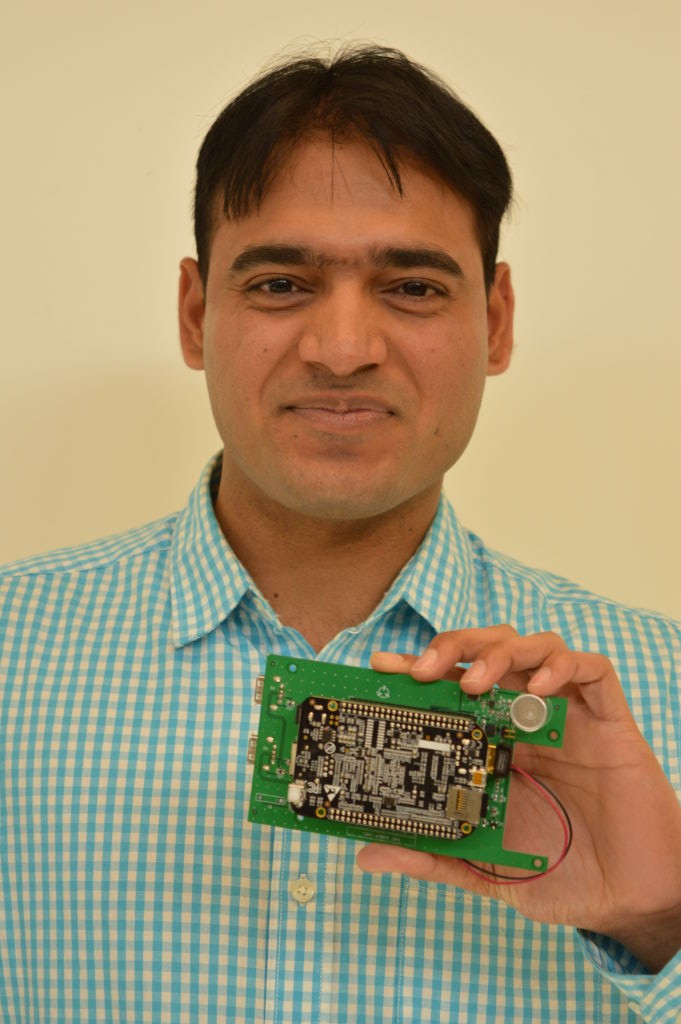
The smartphone-sized circuit board doesn’t look like much, but one day it could help fallen seniors get back on their feet.
Since November a team of international students has been building the alarm portion for a new fall-detection system for seniors created by Ottawa start-up Zamani Wireless Systems.
“This project can actually save your life,” said Arvindkumar Chavda, a second-year electro-mechanical engineering technician-robotics student.
This is no exaggeration. According to a study published in the American Family Physician, falls cause 70 per cent of accidental deaths in seniors over the age of 75.
Most fall-detection systems require seniors to wear a gadget like a belt or bracelet. But these only work if seniors remember to wear them and many don’t.
Zamani’s system can detect up to 22 kinds of falls by scanning a house or retirement home with ultrasound waves. These are the same waves used, for example for a pregnancy ultrasound. When a senior falls, the alarm system calls a neighbour, the hospital or 911, depending on the fall’s severity.
While the idea sounds simple, the technology behind it is complex.
“When we accepted the project, we knew nothing,” said Chirag Parihar, a second-year electro-mechanical engineering technician-robotics student.
“It took us one to two months to understand the whole process,” said Chavda. “With patience we were able to get there.”
Fitting in the seven hours a week of research on top of their schoolwork wasn’t the hard part, according to Nitinkumar Jaiswal, a third-year computer programming student.
The real challenge was building the alarm system from scratch. While some of the students had worked on applied research projects before, this was their first time designing one. However, the idea of keeping seniors safe keeps them motivated.
“If you can make a person’s life better, that’s the driving force for all of us,” said Chavda.
The students also embraced the chance to work with new technology. Chavda and Parihar had to teach themselves programming languages they never would have learned in class.
“That’s the best way to learn: on our own out of curiosity,” said Parihar. “To try things you’ve never tried before.”
The team hopes to demo their final product at Applied Research Day on April 10.
“As a technical person you always have an urge to discover and invent something,” said Chavda, “And I’m a lucky person who got to make it happen.”


